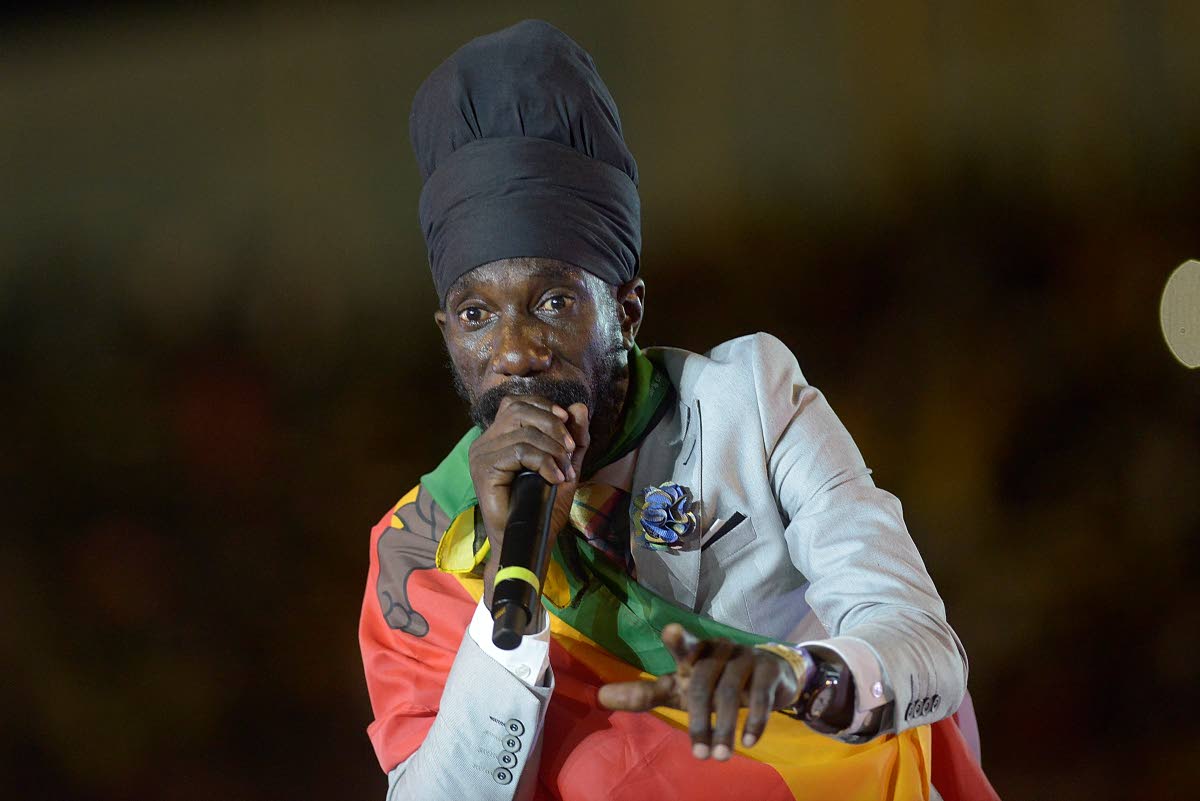The Six G’s Of Dancehall

Dancehall music is governed by different modes of performance, ritual and spectacle. Music industry insiders often point to the lyrical rite of passage undergone by a dancehall act, like a production about badmind, another about marijuana, one about gangsterism, and others coined “reality tunes”. All of these fall under a construct called the six G’s of dancehall. The phenomenon, first explored by Culture Professor Donna Hope, considers the themes gun, gyal, gays, ghetto, ganja, and God.
Here’s how each perpetuates dancehall music and culture.
Gun
The theme signals the rude boy culture that forms part of Dancehall’s inner-city roots. As the video light culture blossomed in the 80s, it was expected that men portray cliché representations of masculinity, which meant women were the only ones expected on the dance floor. The masquerade was upheld by popular dons and gangs that often held dancehall events, but was soon challenged by late dancer Gerald ‘Bogle’ Levy.
Guns, which extend to violence and aggression, also pervade dancehall’s lyrical content. Eighties toasters like Super Cat and Ninjaman, 90s deejays like Bounty Killer and Beenie Man, and millennium stars like Vybz Kartel and Mavado were among those contributing to what was coined murder music. The theme also reflects power and dominance, evident in the presence of Dancehall crews and entourages, and clashes held to declare the dominant and powerful.
Gyal
Sex and sexuality have been dominant discourses in Dancehall since its origin in the 70s. The woman’s physique has been likened to coca cola bottles and Benz and Bimmas, and the brownings, black women and “slim and trim” have also been lyrically celebrated.
Women were the object of the video light’s affection in the 90s, evident with sexualized figures like Dancehall Queen Carlene and her sister Pinky. The gyal theme doesn’t only focus on celebrating a woman’s physique, but also the man’s body count. This speaks to the slew of gyallist anthems released in dancehall, like Shabba Ranks‘ Mr Loverman , Beenie Man’s Nuff Gyal and Kartel’s Love Dem . It also reflects the lived realities of some deejays who father many children, from Ninjaman (29) and Buju Banton (21) to Elephant Man (20).
Gays
It is a theme that popularised in the 90s as acts sought forwards in the dancehall and on stage. It ultimately became problematic for acts seeking to make it in the mainstream market. Buju Banton, T.O.K., Sizzla, Queen Ifrica, Beenie Man and Bounty Killer have all faced financially-crippling consequences of songs that demonized deviant masculine performance and the Lesbian, Gay, Bisexual, Transgender, and Queer (LGBTQ) community.
Beyond lyrics, acts like Shabba Ranks have also faced the wrath of the community because of hate speech. The deejay’s career notably went downhill after he said homosexuals should be crucified during a Channel 4 interview in 1992. Today, many offenders are hesitant to talk about that phase in their career, and have even issued apologies to the community in hopes to expand their American touring prospects.

Other artistes like Sizzla, I-Wayne, and Queen Ifrica remain rooted in their public dislike for gays regardless of the consequence.
Ghetto
Cue “reality songs”.
Songs depicting garrison lifestyles have been a staple in dancehall. Many of the genre’s top acts are natives of the ghetto, and have hailed their communities in songs while detailing the strife, envious mentalities and life of crime that exist in these spaces. Songs have also been made to advocate for better opportunities for residents of inner cities, like Kartel’s Emergency .
Ganja
Weed, kush, high grade, Marie, chronic and spliff are some ways dancehall has romanticized marijuana. The herb’s appreciation stems from reggae and nyahbingi, and fit perfectly into the dancehall space as just like the genre, the herb has been long codified as a menace to society. Some of the biggest dancehall ganja anthems include Kartel’s Mr Officer , Popcaan‘s Weed Is My Best Friend, and Aidonia‘s Kush Inna Mi Brain .
God
It’s a theme also recognised by the terms Jah, Jehovah, Jesus, Father and Selassie. God has been a centerpiece in dancehall, often called upon by dancehall acts for protection from harm, guidance and continued blessings.
Tracks of this nature include Mr Vegas‘ I Am Blessed , Mavado’s On The Rock and Elephant Man’s Father Hear We Cry . The theme also extends to idolism, played out in superfans, entourages, materialism, and rivalries.
